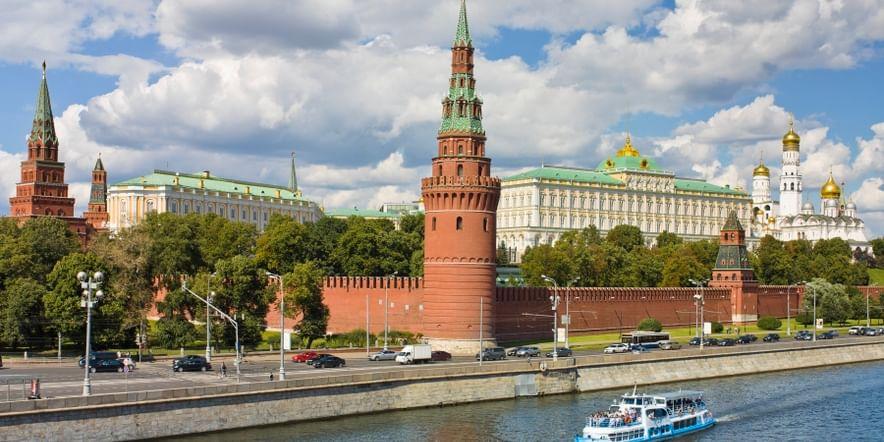"Higher unemployment, lower living standards and increased protest activity yet to come" Caliber.Az interview with Russian professor Tkachenko
Caliber.Az presents an interview with Stanislav Tkachenko, doctor of economic sciences and professor at St. Petersburg University.
- Do the Russian authorities have a chance to use the crisis caused by military actions and western sanctions to start building an economy that will not be so strongly tied to resources?
- After some of the ruling circles and all members of the Russian business community got over the shock caused by the suddenness of the Russian special military operation in Ukraine, the opinion that stability and even the simple survival of the Russian economy in these circumstances are linked to decisive reforms gradually began to take hold. Over time, this belief has been reinforced and has now become virtually universal.
The sphere of macroeconomic regulation, centred on the Russian Bank and its head Elvira Nabiullina, has become an example for other sectors of the economy. It was the decisive measures of the Russian Central Bank to keep the national financial system manageable, combat inflation, and switch to manual regulation of cross-border settlements that became the basis of the current currency stability, keeping unemployment rates low, and increasing budget expenditures both in the military and civilian spheres.
Shifting to the microeconomic level, we should bear in mind that each branch of the economy and even each major Russian enterprise has its own set of threats and challenges, which must be overcome independently, without expecting any substantial assistance from the state. Therefore, now the reform of the management system by industries and enterprises, the use of state credit resources by private businesses, the implementation of import substitution programs, and the opportunities offered by the wide use of "parallel imports" are at the centre of Russia's efforts to reform the national economy.
Natural resources are a national treasure and a natural advantage of Russia, so no one will give up the advantages that the country has when selling them on the global market. On the other hand, since the edge of the sanctions strike is aimed at depriving Russia of the opportunity to use this asset and advantage, one of the ways to respond is to increase the degree of processing raw materials inside the country and exporting finished products, reorienting the geography of supplies from Europe to Asia and Africa, replacing Western capital in the Russian economy with national capital and investments from states friendly to Russia.

- Can the Russian government increase taxes to raise additional money for the budget?
- Today Russian business pays a lot of federal, regional, and local taxes. The overall tax burden in our country is assessed as high, so industries that are particularly important for the country's security (for example, the information and communication technology industry) have been given significant tax breaks. The state can raise taxes only in extraordinary circumstances. I think this is a reliable indicator of Russia's modern economy and its security system, and if business taxes (value-added, profit, mineral extraction, water tax, excise taxes, and others) are going up, it means that the stability of the entire national political-economic system is under threat. So far, such steps have not been taken and are not even widely discussed.
Citizens' taxation (income tax) in Russia is one of the lowest in Eurasia (13% for the absolute majority of citizens and 15% for those whose income exceeds 5 million roubles a year). Its increase is possible. But, as a rule, such actions of the authorities do not have the support of citizens, so they are addressed in exceptional circumstances.
- In your opinion, what irreversible consequences for the Russian economy have already occurred, and which sectors will never be the same again?
- So far, I do not see any irreversible consequences for the Russian economy from the sanctions war. On the contrary, the country's authorities are showing optimism, citing the rouble's unprecedented growth in the post-Soviet history, record-low unemployment and the rapid reorientation of trade flows from Europe to Asian countries, primarily China and India.
But in the longer term, the negative effects of the Russian economy's separation from the global economy, now symbolized by the G7 and the EU states, are bound to be felt. The first stage will be the severance of technological links (value-added chains), due to which hundreds of enterprises in different regions of Russia have already stopped working for weeks to months. This will be followed by an increase in unemployment, a decline in the standard of living of some citizens, and an increase in protest activity. Later, the long-term effects of the current crisis will be felt, manifesting themselves in a technological lag of Russia behind the world leaders in Europe and North America, as well as in Asia. At a new turn of the world economy, Russia will return to the status of a raw materials supplier due to the fact that technologies required for the production of equipment and tools will belong to other states. Moscow is actively trying to avoid this scenario by investing budget and private money into high value-added industries. Russia's success, in this case, is not guaranteed, but the very attempt to keep up with the world leaders is noteworthy.

- Does Russia have a certain benchmark today?
- Russia is now more and more oriented toward China. At the same time, the overwhelming part of the Russian elite is convinced that because of its geographical location, history, population and mission in global affairs, any attempt to borrow someone else's models is counterproductive. Here Russia will have to learn from the same China, which gives "Chinese specifics" to any ideas, models, or structures borrowed from abroad. That is, in fact, it adapts to the peculiarities of national politics and the economy to such an extent that the similarity with the original, taken by Beijing as an example for copying, is completely lost.
- Will Russia be able to acquire the status of an economically self-sufficient country?
- The answer to this question must begin with an attempt to define what in today's world is a "self-sufficient" country or economy? I believe that the BRICS forum, which includes the five largest emerging economies of the planet, is an alliance of self-sufficient states in every sense, which initially had no place in the American-centered model of globalization. The current active discussions on expanding the number of states participating in BRICS are a testament to the recognition of Brazil, Russia, India, China and South Africa as self-sufficient centres of the global political and economic system with which other countries are eager to cooperate.
If we answer the question from the point of view of goal-setting for developing Russia's path in a globalizing world, striving for self-sufficiency at this stage is a permissible precaution. But we should not be carried away with it. At the current level of transport and ICT development, any self-sufficiency is illusory. Not even the tallest wall will protect national economies today from external shocks or structural effects.








